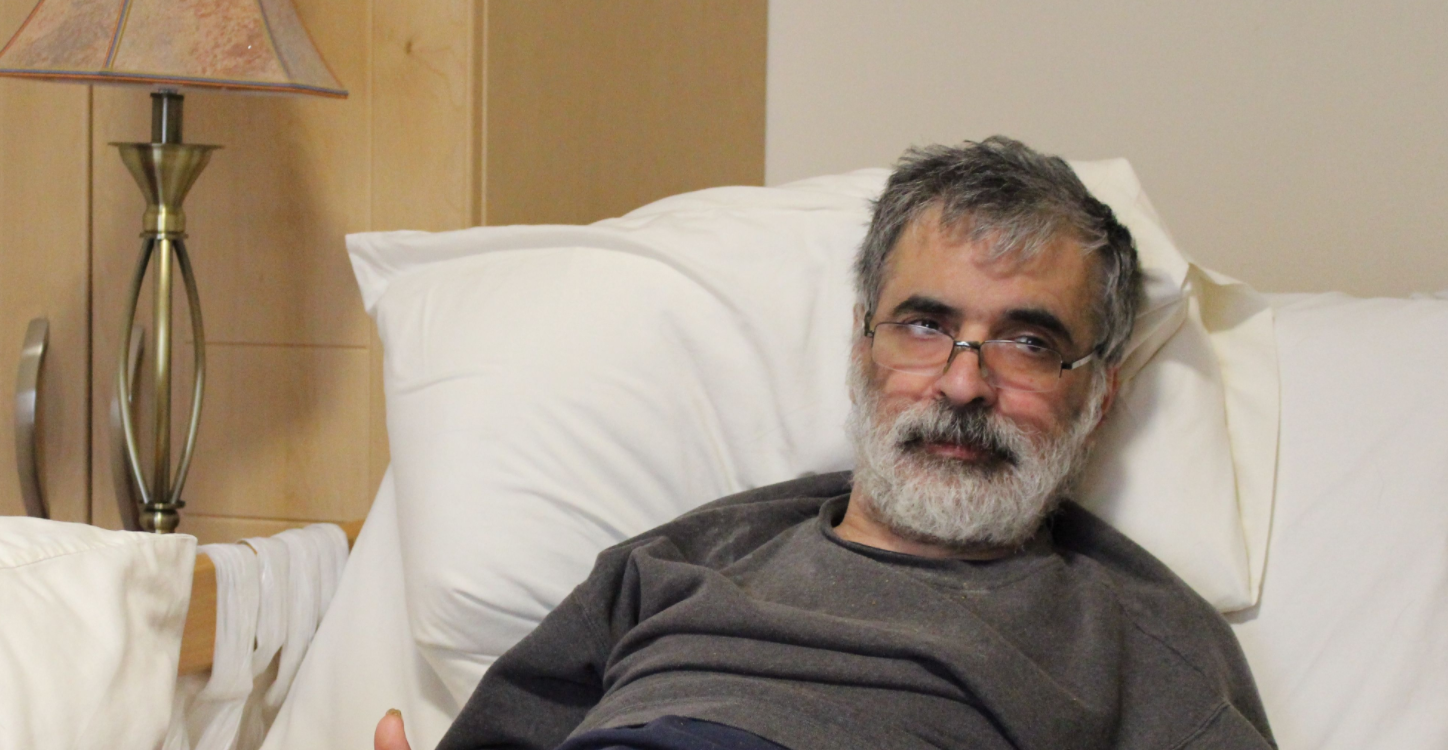A man suffering from an incurable but non-terminal illness has launched a legal challenge to change the law surrounding assisted suicide.
Omid was diagnosed with multiple system atrophy in 2014. He can no longer walk, uses a catheter bag, and struggles to talk. Most days, he is confined to bed. In 2015, he tried to take his own life.
The condition, however, is not terminal. Speaking to the Victoria Derbyshire show, the 54-year-old explained, “We don’t know how long it could take. It could take more than 10 years – more than 15 years. In the morning…I wake up thinking ‘please let this be the last time.'”
Currently, anyone who helps Omid to end his life could face prosecution. British law states that anyone who helps another person to die can be imprisoned for up to 14 years.
So, this is a human rights issue?
“He wants a safe and painless death”
A non-terminal, incurable patient starts his legal fight the for right to die: https://t.co/6rcTcG8IVt pic.twitter.com/krA8EilCDi— Victoria Derbyshire (@VictoriaLIVE) March 27, 2017
The right to life is protected by Article 2 of the Convention on Human Rights. There is, however, no right to die. This was established in 2002 when a woman with motor neurone disease took her case to the European Court of Human Rights. It was confirmed in 2014, when the Supreme Court said that this was a matter for Parliament to decide, not the courts.
Several countries such as Switzerland, the Netherlands, and Canada do allow assisted suicide in controlled circumstances. However, this has always been a contentious issue in the UK and attempts to change the law have so far been unsuccessful.
In 2015 MPs rejected plans for a right to die in England and Wales. Dame Caroline Spelman argued: “The existing law protects the elderly, the disabled and those who might otherwise feel pressured to die.”
Campaigners, however, say that people should be allowed choice and control over their death in certain circumstances, such as where they are terminally ill.
An emotive topic

Omid’s case raises further questions because he could live for another ten or twenty years. Many ‘right to die’ campaigners, such as Dignity in Dying, only advocate for people in the final six months of their life to be able to chose assisted suicide – not those who have long term condition.
The British Humanist Association, however, believe that everyone should have the right to choose when to end their life. Chief Executive Andrew Copson told RightsInfo:
All individuals should have the right to die with dignity. This means the legalisation of assisted dying for both terminally ill and incurably suffering individuals who are of sound mind, with strong safeguards in place to prevent abuse.
What happens now?
Omid has filed a judicial review in the High Court, challenging the rules around assisted dying. His lawyers have asked for a full hearing.
Another man, Noel Conway, is also attempting to challenge the law in the High Court. Mr Conway has motor neurone disease and is not expected to live beyond the next 12 months. Unlike Omid’s case, Mr Conway’s challenge is specifically about the rules and safeguards for adults who are terminally ill.
The High Court’s decision on whether to allow a full hearing in both cases is expected in the next few days.
What to know about this issue? Inform yourself with our coverage.
- Read our feature on why we need to talk about the right to die
- Take a look at our infographic on the right to life







